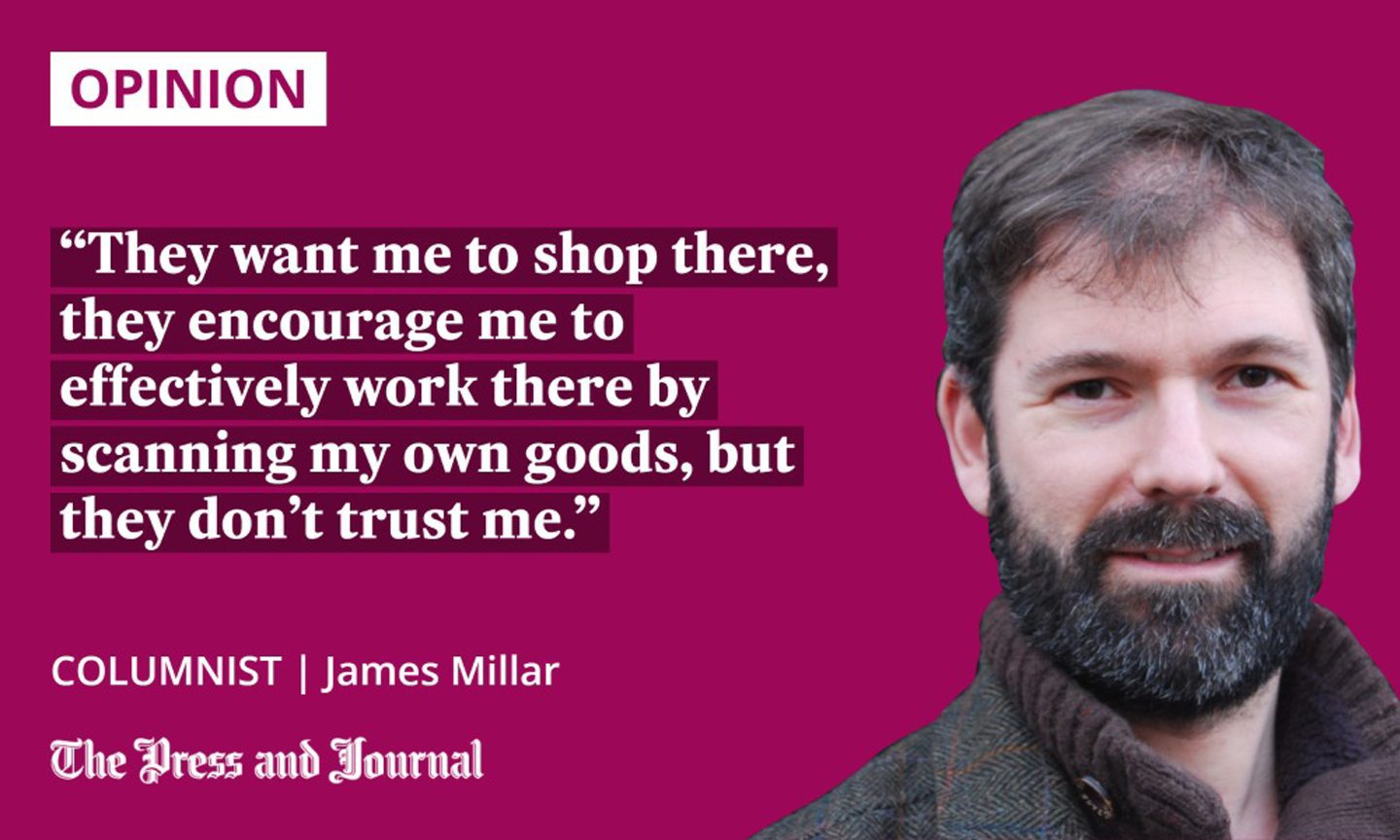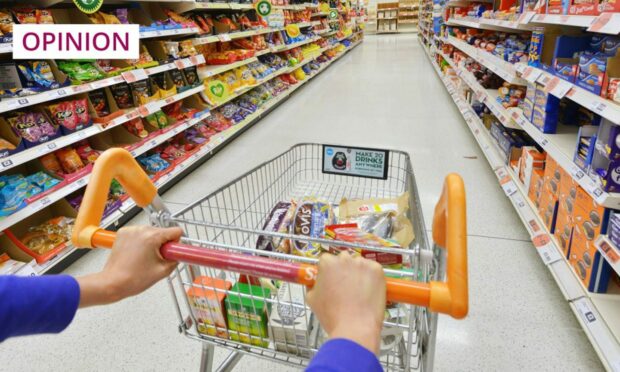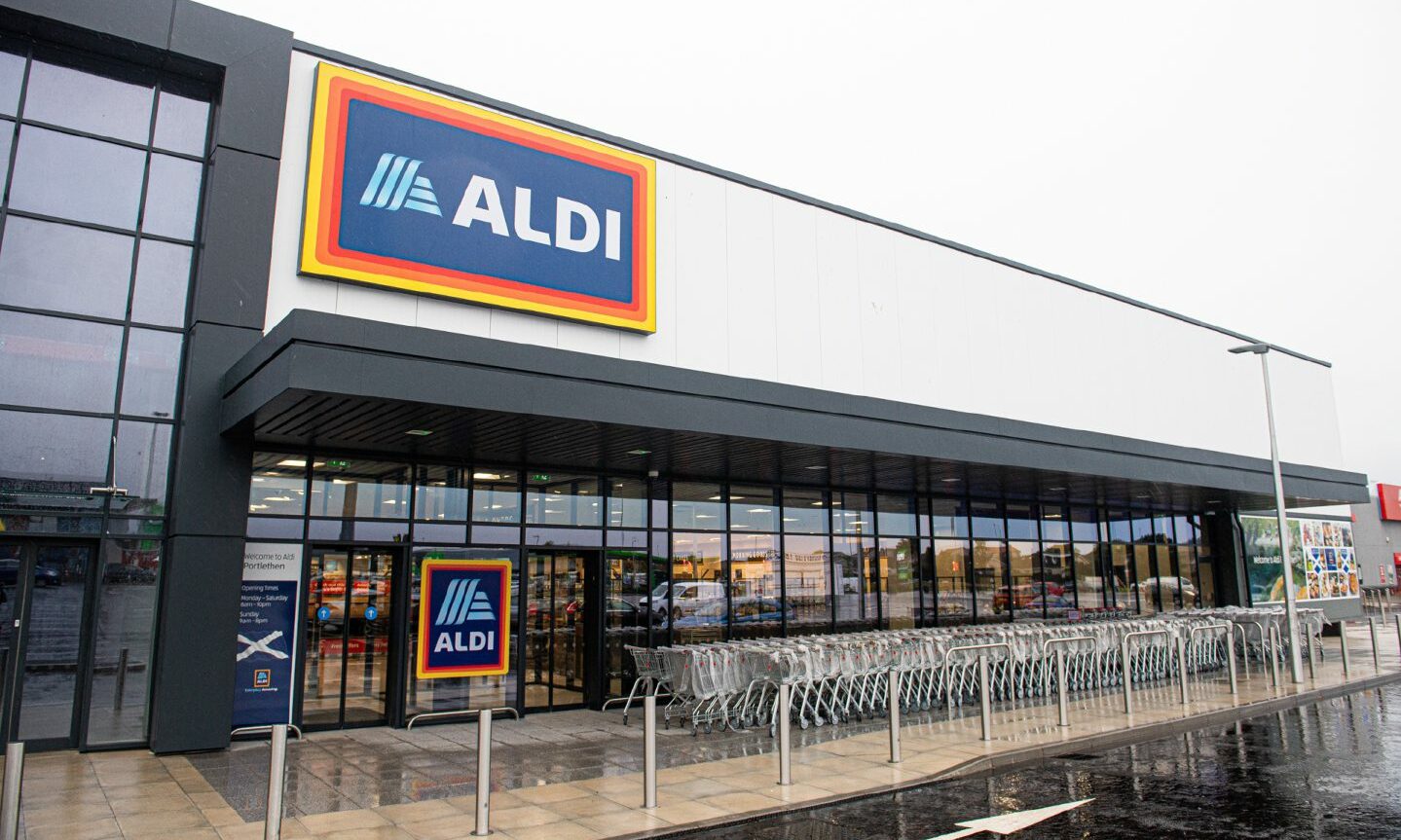There was little pleasure in lockdown – there’s a reason Zoom quizzes didn’t endure and Tiger King seems a bit tasteless in hindsight – so one found delight where one could get it.
For my son, a weekly treat was our trip to the supermarket, masquerading as a homeschool maths lesson. We embraced the scan-and-shop option, both to add interest and to avoid checkout queues.
I felt bad that we were complicit in the grand supermarket scheme to make us do our own work at the checkout so they can sack more staff, but, with a little mental gymnastics, I could convince myself I was actually helping the workers on the tills by reducing the number of people with whom they had to interact.

And it was worth it for the particular joy my son got each week, trying to anticipate the receipt. The machine appeared to enjoy it too, waiting for him to look the other way before spitting the bill at his head every time.
In the years since, and invariably shopping alone, there’s still a thrill as you enter the little scan-and-shop corral, waiting to see if you’ve been picked for the dreaded full trolley re-scan.
But now the shopping bosses have gone too far.
‘Can you just prove you’re not a crook?’
Visiting my local Sainsbury’s to stock up this week, the puny exit gates refused to open, trapping me, perplexed, in the shop-and-scan pen. Turns out I now have to scan the barcode on my receipt in order to be granted passage.
Without a foundation of trust, nobody would do business with anyone else, and the whole shebang begins to unravel
It seems the supermarkets, who did a good job of keeping folk fed during the pandemic but who made tidy sums as a result, want it both ways. They want me to shop there, they encourage me to effectively work there by scanning my own goods, but they don’t trust me.
Imagine if shops started asking every customer: “Can you just prove you’re not a crook?” as they leave. It’d be as morally outrageous as it would be commercially suicidal. And, yet, that’s effectively what’s happening here.
The big chains in particular cannot compete with upstarts like Lidl and Aldi on price, so this seems ill-timed, just as more and more shoppers are focused on the bottom line.
But, more than that, it’s a rotten basis for a relationship.
And capitalism is fundamentally rooted in a relationship between buyer and seller. Of course, we’ve established a web of contract law and such like to enforce that arrangement but, without a foundation of trust, nobody would do business with anyone else, and the whole shebang begins to unravel.
Having to scan my receipt to get out of Sainsbury’s is a niggle. The collapse of capitalism would be significantly more inconvenient.
James Millar is a political commentator, author and a former Westminster correspondent for The Sunday Post


Conversation